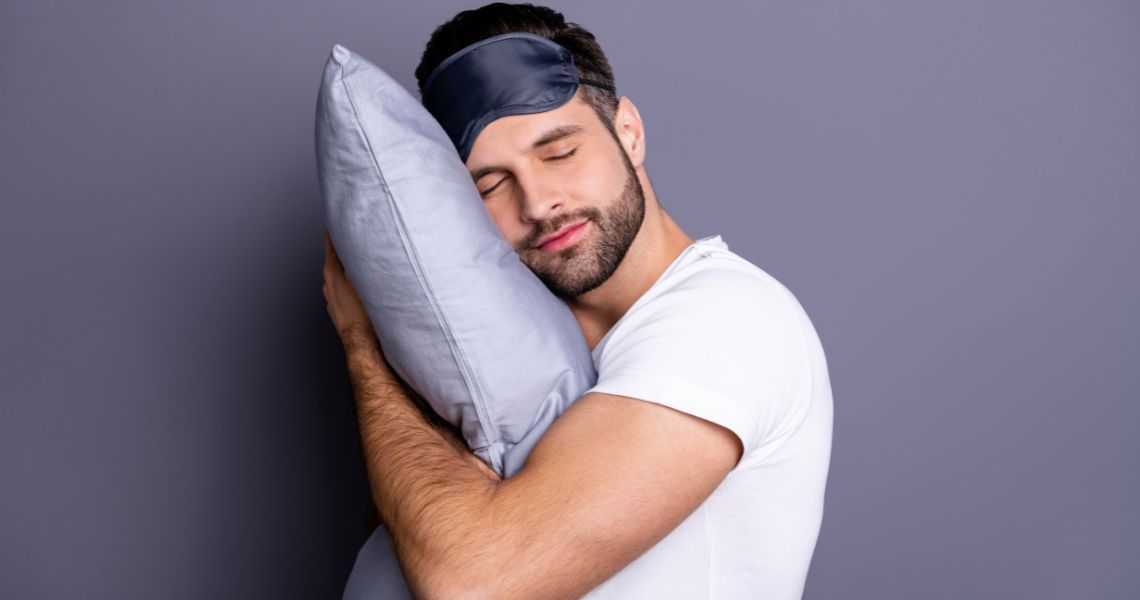The importance of enjoying a good quality sleep
Sleep and the time change have a direct influence on your rest and well-being. Learn how to adapt to improve your quality of life.

What is sleep and its phases?
Sleep is a natural, necessary and periodic physiological process of rest essential for physical and mental recovery. It’s not just rest or inactivity, but an active process that involves distinct phases, each of which fulfils basic, unique and necessary functions for the balance of our body. The role of sleep is as vital as exercise and diet.
Phases of sleep
Sleep cycles last between 90 and 110 minutes and include:
- Light sleep: the transition from wakefulness, with slow eye movements and reduced muscle tone. It lasts 5-10 minutes and is crucial for relaxing into sleep.
- Light, deeper sleep: preparation for deep sleep, with bursts of brain activity. It lasts 10-25 minutes and helps to consolidate memory.
- Deep sleep: or slow wave sleep. It lasts 20-40 minutes, during which time tissue repair, immune strengthening and growth take place. Its role in physical recovery stands out.
- REM sleep (rapid eye movement): occurs about 90 minutes after falling asleep, lasts about 10 minutes and recurs later. Vital for learning and emotional regulation.
Main benefits of a good night's sleep for health and well-being
- Physical health: supports the recovery of all organs and works to restore balance, which reduces cardiovascular risks, among other things.
- Mental health: improves concentration, memory and alertness, optimising cognitive function.
- Hormonal regulation: influences appetite hormones (leptin, ghrelin) and stress hormone (cortisol), which helps with weight control.
- Immune system: strengthens the immune system and thus helps to fight infections.
- Emotional well-being: regulates mood, reduces stress and improves relationships.

How many hours of deep sleep do we need based on our age?
Children and babies
High proportions of deep sleep, essential for development, with babies needing up to 17 hours in total.
Adolescents (13-17)
They require 8 to 10 hours, with a deeper sleep for growth.
Adults (18-64)
They need 7-9 hours in total, with 13-23% deep sleep.
Older adults (›65)
Deep sleep is reduced to about 30 minutes, with 7-8 hours in total, due to age-related changes.
How time changes or
routine shifts affect sleep
Changes, such as daylight saving time, disrupt sleep by altering circadian rhythms. It usually takes 3 to 4 days to adjust and it’s more difficult for children and the elderly. Routine changes, such as travel or work shifts, also disrupt sleep, affecting quality and duration.
Practical sleep tips it’s best to
- Go to bed and wake up at the same time every day, even on weekends.
- Have a dark, quiet and cool room (15-20°C), using blackout curtains or earplugs.
- Limit caffeine, nicotine and alcohol before bedtime.
- Reduce the use of electronic devices one hour before bedtime (light affects melatonin).
- Regular physical activity helps, but avoid late sessions.
- Avoid heavy meals.
- Read, listen to music or take a hot bath to relax.
- Limit napping to 20-30 minutes, so as not to interfere with night-time sleep.
If sleep problems persist, consult a professional, as chronic problems may need intervention.
What do you think about?
Share comments, opinions and tricks with the Community








